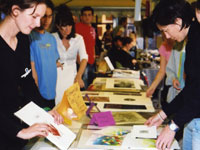Subject Area: Politics
The course uses Russia – its history, politics, economy and society – to examine and test a number of key political science and political economy concepts. Some familiarity with Western democracies is assumed, since part of the test is to compare how the concepts perform in analysing Western democracies and Russia. One of the most common questions asked about Russia is: ‘are they like us, or are they completely different?’ It is a question that will force participants in the course to think hard about the nature of Russia and the adequacy of the concepts used to analyse it. The concepts include political culture, rational actor theory, neo-institutionalism, Weberian categories of legitimacy, democratisation and transition theory, and various forms of geographical and economic determinism. Key aspects of Russian history – Orthodoxy, the Westernisers versus Slavophiles, the Bolshevik Revolution, Stalin’s terror, the transition from Soviet rule – are examined, as are the features of its geography that might be relevant to its development.

